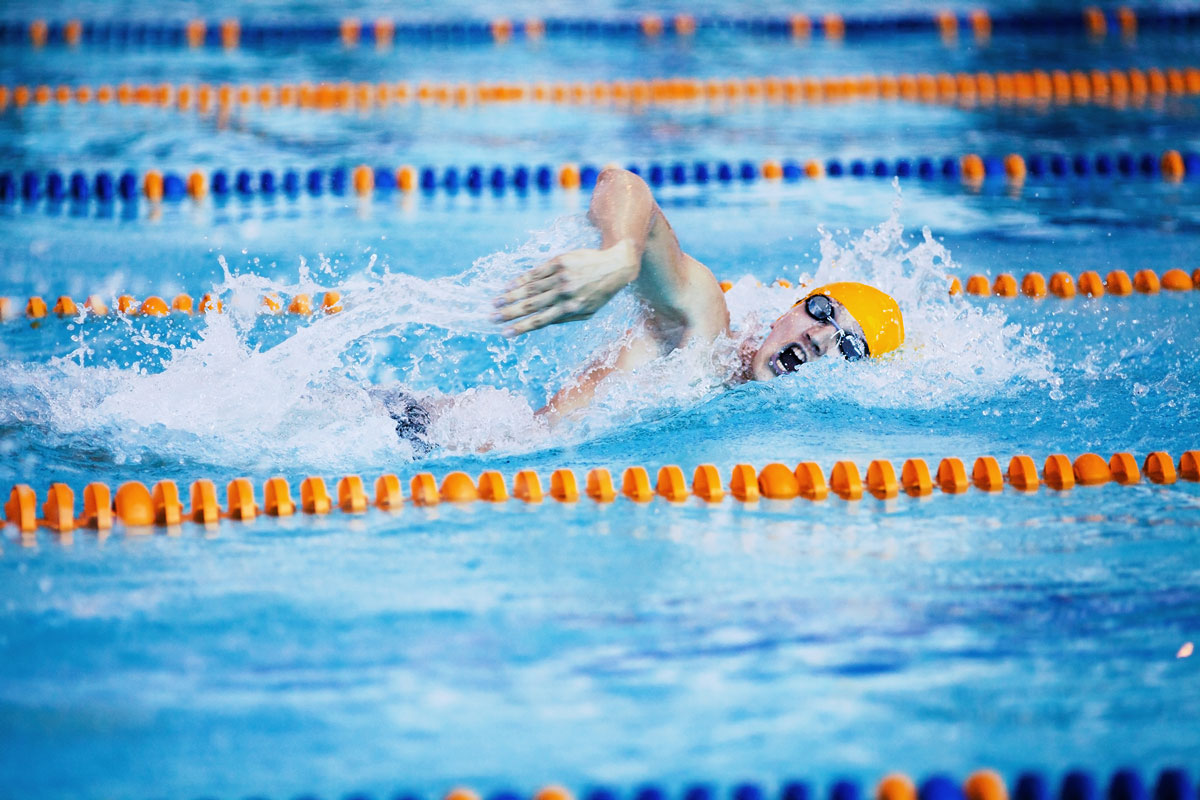
When Sameena (name changed) was four she had a freak accident. While on a family trip to Egypt, she fell from a cruise in River Nile. Sameena didn’t know how to swim, and though she was lucky enough to have been saved by the cruise crew, had she known how to swim, this incident would not have been a life-threatening trauma, which her parents still shudder to reminisce. After this near-tragedy, her parents realised the vital importance of teaching their daughter to swim. Benefits of swimming are endless. Apart from being an important life skill, swimming is immensely good for health, builds in confidence, and is a great activity to maintain fitness. Evaliz Alcanzar, the swimming instructor at Grand Spa feels that it is best to learn to swim from early childhood. “Drowning is one of the leading causes of death among youth, hence it is mandatory to know swimming. It also provides cardiovascular activity that promotes heart and lung health, improves stamina, flexibility, strength, balance, and posture, helps preventing obesity in children, and is a good mental exercise too,” explained Eva, who trains both adults and children here in Muscat. For aspiring swimmers, she has observed that first it is essential to mentally prepare. “They must have the full willingness. Fear is the biggest hindrance and those who have it should overcome it first, instead of jumping straight into the pool,” she said. “It is important for the learner to feel the water first, get accustomed to it, and love it. Courage automatically comes from within, and not from the instructor.” Eva strongly believes that no learner should ever be forced to train. “If anyone has fears or phobias it is important for parents and instructors to give them enough time to recover and overcome such fears.” Children are generally boisterous and have a tendency to break rules. So both instructors and parents should explain the hazards of not maintaining precaution at the pool. Paying attention to all the instructions given, even if it seems very insignificant, is key in swimming lessons. “One of the rules in swimming is ‘do not swim if you are not ready’. Students must and always listen to this. They must be aware of what they will do the moment they are in the pool,” Eva explained. “They should know which side of the pool is how deep. Also the rule of “NOs” including no jumping, no shouting, no eating (within the pool area or inside the pool), and especially, no playing (running) around the pool is a must. The biggest mistake that adults make is to leave children unattended near a pool. “Instructor should give proper orientation to the learners. From the pool facilities, toilet, wash room, dressing room, and others, students should be made aware of each and every rule and discipline that needs to be followed,” said Eva. Children and parents should also know that swimming in open water is not the same as swimming in a pool. Open water swimmers need to be aware of uneven surfaces, river currents, ocean undertow, and changing weather, and should know what to do in an emergency. To enjoy the wonders of the water, and to remain safe in all kinds of situations, here and abroad, begins with knowing the basics of how to swim. For the very young, it is best to learn to love the water in a safe way, before a negative encounter traumatises them, and for older students, or those who have already faced the dangers of the water, like Sameena, it is important to find a good, patient instructor, ideally for private training, who not only teaches strokes, but also encourages self-esteem, courage, and determination. Sign-up for private swimming lessons Grand Spa Mumtaz Area + 968 2470 4654 One-on-one classes (only for girls and ladies), OMR50 which includes 6 classes and one month of pool membership Monthly pool membership(for additional practice), OMR30 Nautilus Swimming Club Al Hail South + 968 9179 1791 Learn to swim course of 36 sessions, OMR180 —[email protected]